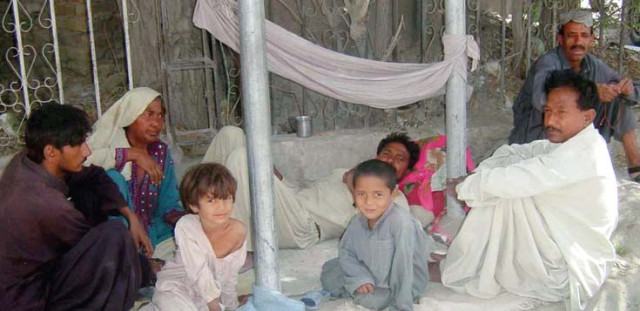Disease outbreak: Diarrhoea cases in K-P, FATA register a sharp increase
Treatment centres set up by MSF; medical teams working reinforced.

Disease outbreak: Diarrhoea cases in K-P, FATA register a sharp increase
With the monsoon season in full swing, the number of patients suffering with acute watery diarrhoea from different parts of Khyber-Pakhtunkhwa (K-P) and Kurram Agency have increased since July, said a press release issued by Doctors Without Borders (MSF) on Thursday.
The organisation has opened temporary treatment centres in existing hospitals in Mingora, Timergara and Hangu in K-P, as well as in Sadda in Kurram Agency. MSF is also providing treatment to the patients in the isolation ward of Tehsil Headquarter (THQ) Hospital Dargai in Malakand Division and the outpatient department of THQ Hospital Alizai in Kurram Agency.
As of September 4, more than 5,400 patients have been treated.
It has been observed that the treatment centre at Mingora has seen the highest number of patients in the entire province, with an average of 200 patients visiting the centre every day.
The number of cases increased sharply over the course of a week in late August, rising from 73 patients per day to 270 patients per day. About 25 per cent of these were children under five years of age.
“Acute watery diarrhoea is an easily treatable disease, but it can spread quickly, so prevention is as important as treatment,” said MSF Medical Coordinator Dr Jacob Maikere.
“The number of cases that we saw, especially in Swat, increased significantly during and after Eid holidays. However, the situation is now stabilising,” he added.
MSF is reinforcing its medical teams in Mingora and Timergara with three extra international staff and around 30 extra Pakistani staff, who are working alongside the Ministry of Health on the ground. It has also brought in extra specialised medical supplies for this purpose.
To prevent the spread of the disease, MSF is providing water and sanitation support in the affected areas in collaboration with local communities and medical authorities. This includes cleaning, disinfecting and chlorinating of wells and springs in the villages of Swat and Lower Dir.
MSF teams are also providing training to medical staff to strengthen their capacity in dealing with rising cases.
In addition to that, the organisation is closely monitoring the situation in neighbouring areas. Following an assessment in Nowshera and Mardan, MSF has donated treatment materials, including intravenous fluids and oral rehydration solutions to local health facilities.
Published in The Express Tribune, September 9th, 2011.



1724319076-0/Untitled-design-(5)1724319076-0-208x130.webp)















COMMENTS
Comments are moderated and generally will be posted if they are on-topic and not abusive.
For more information, please see our Comments FAQ